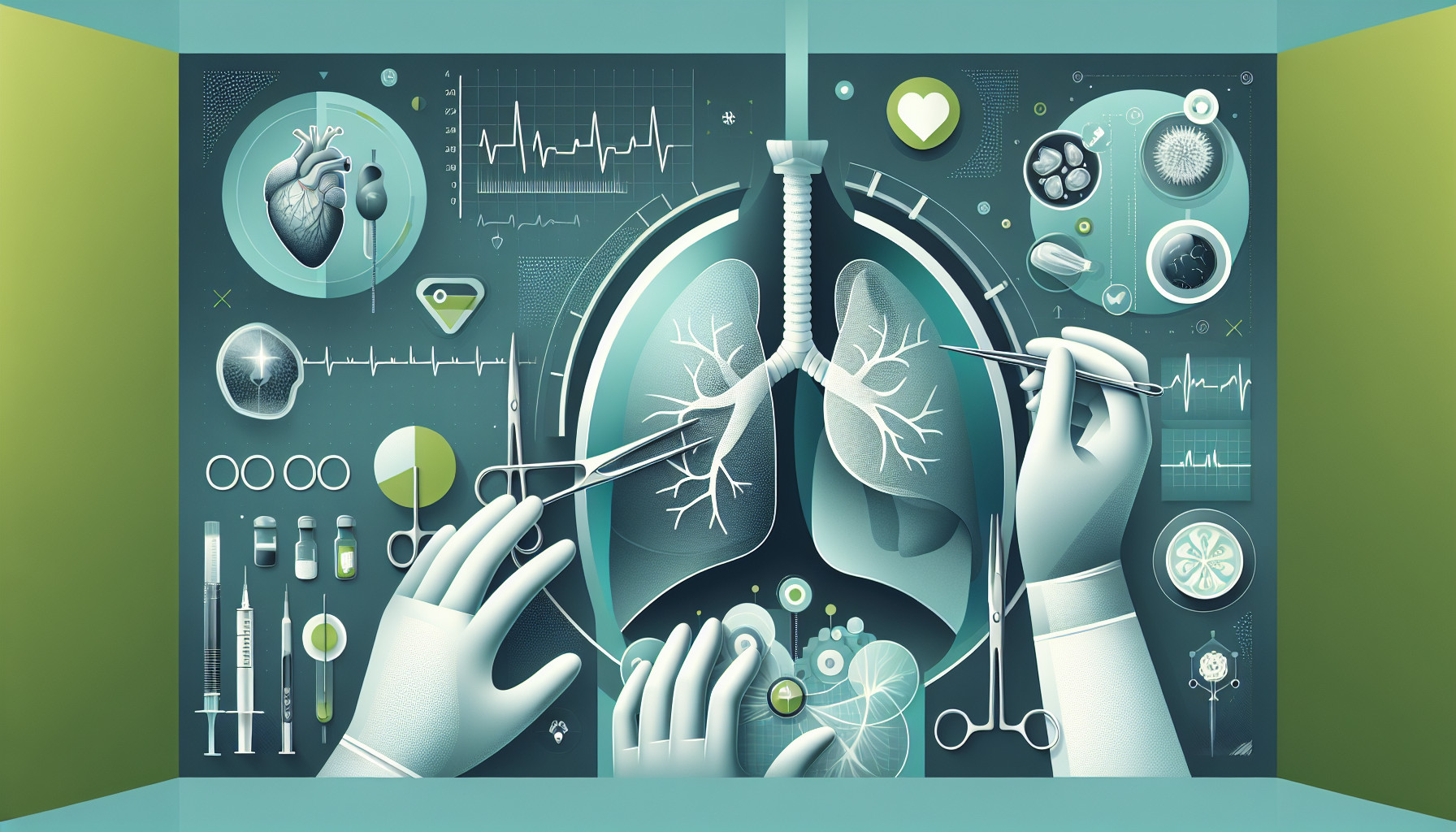Our Summary
This research paper discusses the critical period following a lung transplant operation. It emphasizes that quick identification and treatment of a condition known as “primary graft dysfunction” can significantly improve the long-term performance of the transplanted lung. The paper also notes that post-transplant complications affecting the heart, digestive system, kidneys, and blood are common and need careful management to prevent negative outcomes. The study deals with critical care management, the use of a life-supporting device called “extracorporeal membrane oxygenation”, immune system suppression, infection prevention, and lung transplant complications.
FAQs
- What complications are common after a lung transplant?
- How does primary graft dysfunction affect the long-term function of the transplanted lung?
- What type of care management is critical after a lung transplantation?
Doctor’s Tip
One helpful tip a doctor might tell a patient about lung transplant is to closely follow the postoperative care plan provided by the medical team. This may include taking immunosuppressive medications as prescribed, attending regular follow-up appointments, and notifying the transplant team immediately if any concerning symptoms or complications arise. It is also important to maintain a healthy lifestyle, including avoiding smoking and following a nutritious diet, to support the function of the new lung.
Suitable For
Patients who are typically recommended for lung transplant are those with end-stage lung disease that cannot be managed effectively with other treatments. This includes conditions such as cystic fibrosis, chronic obstructive pulmonary disease (COPD), idiopathic pulmonary fibrosis, pulmonary hypertension, and certain types of lung cancer. Patients must also meet specific criteria for lung transplantation, including being in good overall health aside from their lung condition, having a life expectancy of less than two years without a transplant, and being able to comply with post-transplant care and medication regimens.
Timeline
Before lung transplant:
- Patient undergoes extensive evaluation to determine eligibility for transplant, including medical history, physical examination, imaging studies, and laboratory tests.
- Patient is placed on a waiting list for a suitable donor organ.
- Patient may experience worsening symptoms of lung disease, such as shortness of breath, coughing, and fatigue.
- Patient may undergo pre-transplantation treatments to improve lung function, such as pulmonary rehabilitation or medications.
After lung transplant:
- Immediately post-transplant, patient is transferred to the intensive care unit for close monitoring.
- Patient may require mechanical ventilation and/or extracorporeal membrane oxygenation (ECMO) support.
- Patient is started on immunosuppressive medications to prevent rejection of the donor organ.
- Patient is at risk for complications such as primary graft dysfunction, infection, rejection, and side effects of immunosuppressive medications.
- Patient undergoes intensive rehabilitation to regain strength and function.
- Patient continues long-term follow-up care to monitor allograft function, manage complications, and adjust medications as needed.
What to Ask Your Doctor
- What is the success rate for lung transplants at this facility?
- What are the potential risks and complications associated with a lung transplant?
- How long will the recovery process take and what can I expect during this time?
- What medications will I need to take post-transplant and what are the potential side effects?
- How will my immune system be affected by the transplant and what precautions should I take to prevent infections?
- How often will I need to follow up with you after the transplant and what kind of monitoring will be required?
- What signs and symptoms should I watch out for that may indicate a complication or rejection of the transplant?
- Are there any lifestyle changes or restrictions I will need to adhere to after the transplant?
- How long can I expect the transplanted lung to last and are there any factors that may affect its longevity?
- Are there any support groups or resources available for lung transplant recipients to help with the emotional and mental adjustment to life post-transplant?
Reference
Authors: Trinh BN, Brzezinski M, Kukreja J. Journal: Thorac Surg Clin. 2022 May;32(2):185-195. doi: 10.1016/j.thorsurg.2021.11.006. PMID: 35512937
